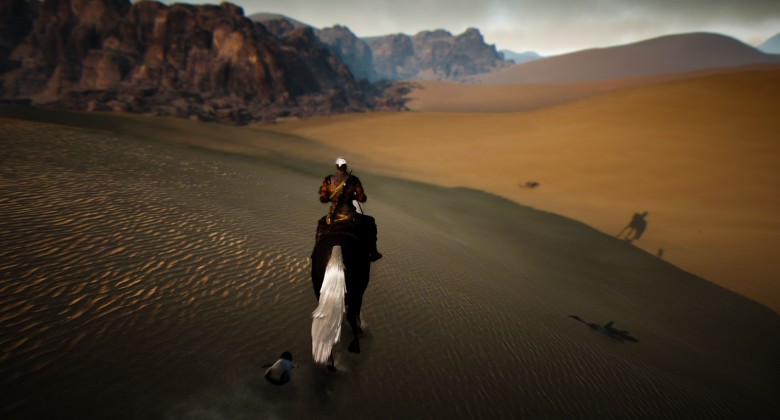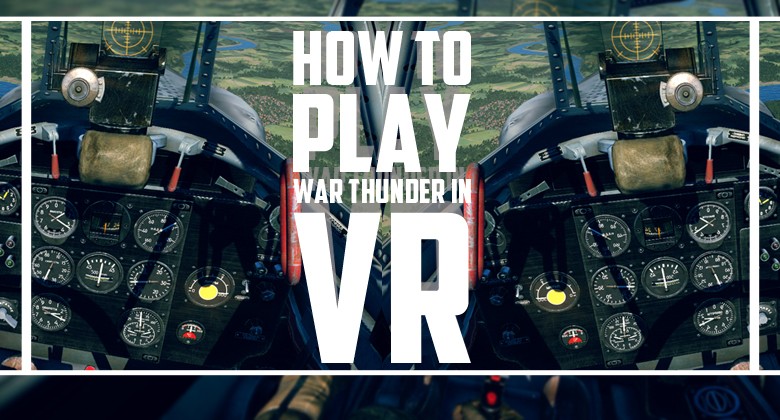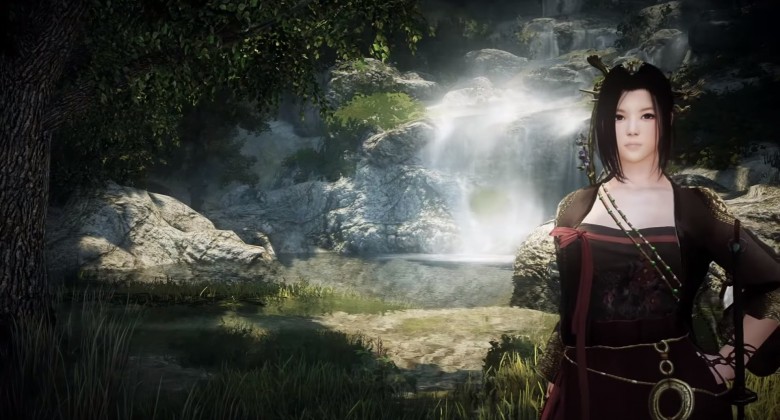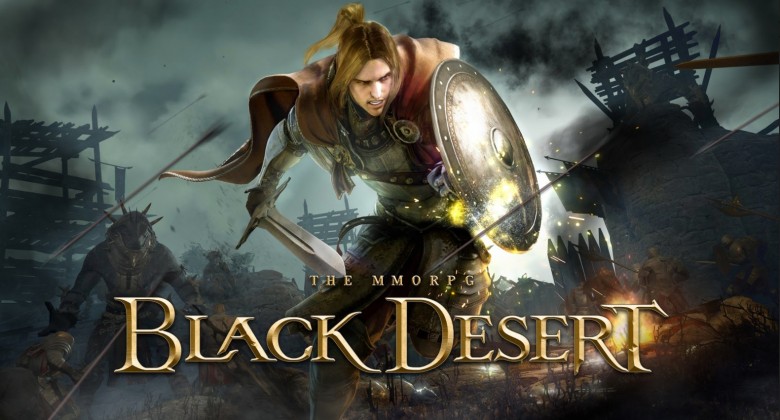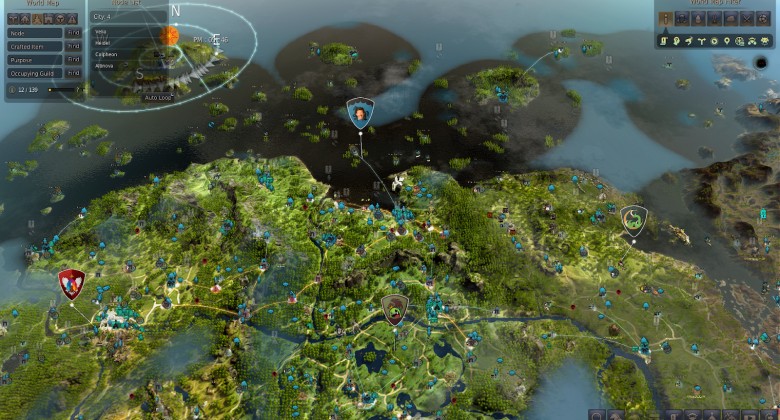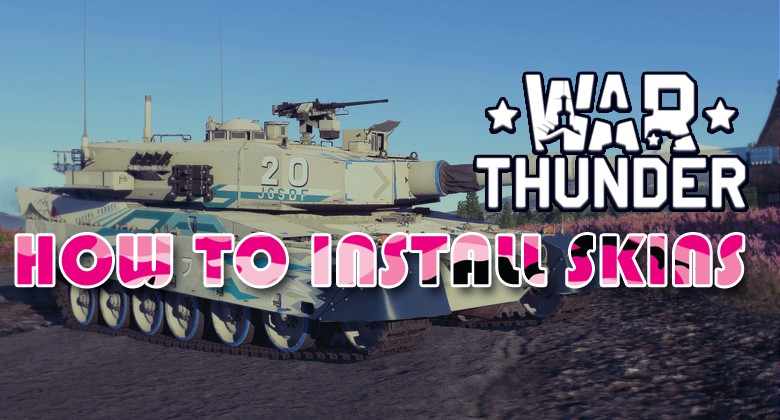Black Desert Online: How to Build a Production Empire
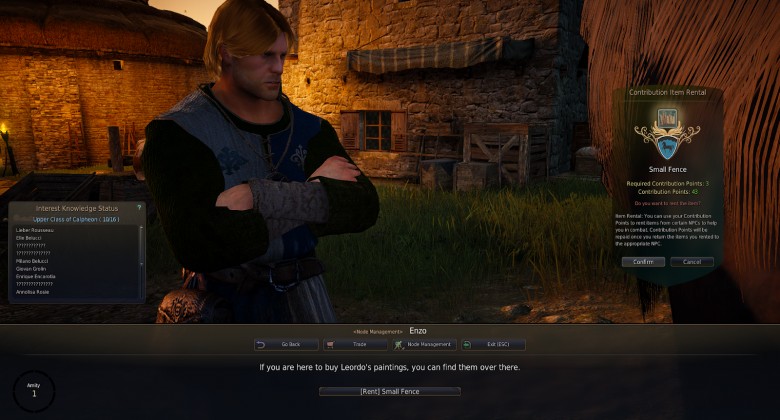
In the guides I’ve written so far, we’ve explored many of the basic and essential features of Black Desert Online. As I’ve reiterated, this game is super big. This is great because it means there are a lot of fun things to do. As Microsoft recently announced that Black Desert Online is coming to Xbox, it’s a good time to be involved with the game. However, the learning curve can sometimes be quite steep. Getting familiar with the mechanics, questing, and open nature of the game can be off-putting for newcomers. Two of the most intricate systems are trade and production. Nodes and workers are central pillars to these mechanics, and I’ve written beginner guides for each. Mastering them allows you to build a production empire that can score you a lot of in-game cash.
Your production empire can span across a great deal of the map.
In this guide, we’ll cover everything you need to know in order to get started with your production empire. This includes some notes on workers and Nodes, how contribution points affect your empire, and what nodes to invest in. We’ll also look at what to do with your hard-earned materials once they’ve been farmed, and look at how to maximize your profits. By the time we’re finished, newcomers should have a better understanding of what a production empire can mean for you.
Quick Notes: Workers
There’s a lot to be said about workers, which is why we’ve already given them the full treatment in another guide. However, it’s worth refreshing their importance here. Workers will be at the heart of your production empire. They will do the majority of the gathering, as well as some of the processing. You’ll need a vast network of workers in order to be profitable in your empire, so it’s worth getting to grips with how they work.
Your workers will gather resources which you can then process and sell for a profit.
Workers are NPCs that you can hire to carry out a variety of tasks. For the most part, you will employ them on resource nodes to collect raw materials. You can hire them from a Work Supervisor in a variety of different towns and cities. Like many of the game’s items, workers have tiers that determine how effective they are. The higher the tier, and the higher the level, of a worker, the more efficient it is in gathering. They can also be put to work creating trade crates, items, as well as processing some of the material that they gather. Each worker takes up one lodging slot, so you will need to purchase additional ones for each worker using Contribution Points (CP).
Quick Notes: Nodes
Nodes are the lifeblood of Black Desert Online in many ways. Discovering Nodes helps you defog the world map, giving you a fuller understanding of just how big the game is. Furthermore, they can be invested in to provide you access to greater drop rates, experience bonuses, and of course access to resources. Some nodes, such as towns and cities, you will be able to discover automatically. Others require you first to visit the Node Manager to unlock access to that Node.
Towns and cities have a variety of housing options. By accessing them from the world map, players can add many different types of accommodation, storage, and workspaces to their production empire. Whether it’s a residence for you to craft in, lodging for your workers to stay in, or storage for your raw materials to be kept in, city and town Nodes are vital to the game. Later in the guide, we’ll explore some of the key Nodes you should begin investing in. It’s a good idea to start this process as early as you possibly can. The longer you have a worker on a Node, the more materials they’ll be able to collect and the faster they’ll level up. Ultimately, your aim is to have a network of Nodes that all have high-level workers gathering for you.
City Nodes allow you to house workers and grow your storage capacity. Resources are stored here too.
The Nodes you choose to invest CP into will depend on your ultimate goal. Some are worth more than others, but some are necessary if you want to craft specific items. In this guide, we’ll focus mainly on getting your production empire in Black Desert Online set up, but you’ll want to tailor your expansion to your gaming goals.
Building a Production Empire in Black Desert Online
Let’s begin with first things first; building a production empire is going to take a lot of time and effort. That time could arguably be better spent doing other things in the game. However, this really depends on what your play style is. If you like the resource/worker management aspect or want to gain some passive income aside from fishing, this could very well be for you. There are a number of excellent resources that have helped me pull this guide together. My own production empire is still being formed slowly but surely. However, there are still some basics that you’ll need to get right so that you can form your own empire.
Below are some of the top tips:
Contribution Points
Contribution points are one of the most important resources when it comes to creating your production empire. They’re used in just about every aspect of creating your network of crafting and trade. It’s therefore important to utilize them wisely. It’s up for debate what the optimal amount of CP to have is for an empire based on production. Most agree that it’s around the 250-300 mark. However, you can get started with around 100 CP. This is a fairly easy amount to obtain, particularly if you follow the main Black Spirit questline.
Contribution Points are bound to your family. This account bound nature means that each character you have can draw from the total amount that you have. It also means that you can use multiple characters to add to your tally. Another useful feature of CP is that they cannot be lost. Even though you ‘spend’ them by buying lodging, investing in Nodes, and renting items, you can reverse all of those transactions. So, if you’ve invested in a Node that isn’t particularly profitable for you, you can withdraw your contribution, and it goes back into the pool.
Many quests give contribution experience that will give you more CP.
Again, it’s a wise idea to begin investing your CP as soon as you can. You can start accumulating materials and worker experience by doing so. Even if you decide to alter your network at a later time, you can do so without incurring losses to CP. That being said, it’s still a wise idea to keep track of roughly where you’ve invested your points. Even though you can withdraw them, you have to select each Node or item in turn to remove your contribution. It’s easy to lose track of where you’ve spent CP.
How to Gain More Contribution Points
There are two main ways you can increase the number of CP you have. The first is through questing. Black Desert Online is incredibly densely packed with quests, which vary from story based, to crafting, to collecting, to life skills. When you accept a quest, you’ll be able to see the rewards it gives. Quite often you’ll see the ‘Contribution EXP’ marker. These can vary in quantity but are in general a good way to gain CP. The other method is through cooking. Certain recipes will give by-products that can be turned in to gain contribution experience. We’ll cover this in more detail below.
Invest in Grain Nodes and Make Beer
Your first step in building an empire is to invest in some grain nodes. There are a lot of these across the map, but you can invest in some early on. The main benefit of these grain nodes is that you can use your gathered produce to make beer, and lots of it. Why is beer so useful? Because your entire workforce can survive on beer alone.
The recipe for beer is incredibly simple:
-
5 x Grains
-
6 x Mineral Water
-
1 x Sugar
-
2 x Leavening Agent
With this easy recipe, you can keep your workers’ stamina up. If you start by placing a worker on Velia’s potato node, at Bartali Farm, you accumulate a lot of potatoes. You can then level your cooking skill, create beer by the bucket load, and also create the by-product of, ‘Dish with Poorly Prepared Ingredients.’ Although this latter sounds unappealing, you can exchange every 5 of these you make for some contribution experience. All you need to do is right-click on the item, and it will direct you to the necessary NPC in Heidel. There are other side dishes too, some give cooking experience, some silver, and some give milk.
By-products of cooking beer can be used to gain more contribution points.
I cannot stress how much beer you will get through, particularly once your trade empire is in full swing. It’s therefore worth getting the raw ingredients early on. Potatoes, Wheat, and Barley can all be used and are easily farmed.
Below are some of the hotspots you should target:
-
Northern Wheat Plantation for barley and wheat – Calpheon
-
Bartali Farm for potatoes – Velia
-
Toscani Farm for corn – Velia
With 4-5 workers across these Nodes, you can start amassing all the grains you’ll need to run the rest of your production empire. Use your AFK time to process the beers.
Invest in Timber Nodes
Timber is a fantastic resource to invest your workers in. It often has a high value on the marketplace, even when it’s unprocessed. It’s used for many different crafting purposes and is especially useful for shipbuilders. Although it takes a high-level processing skill to get the best out of the material, it’s certainly possible to reach that level by processing all the timber your workers gather. Timber is also especially useful in making trade crates. Once you’ve processed the timber from various trees into planks, you can then process it further into plywood. Alternatively, you can make your workers box it up into crates using a wood workbench. These crates can then be transported to far off regions. Provided you have a network of connected Nodes to this region you can turn quite a profit while leveling up your trading skill. There’s a really useful trade calculator that will show you how profitable your crates can be.
Lumbering will produce timber which can be processed and sold.
Unlike the grain Nodes, you’ll need a lot of different timber Nodes to start making a profit. Once you’re at maximum capacity, you should aim to have around 20 workers on timber alone.
Below, I’ve listed some of the hotspots that you should check out early on:
-
Quint Hill and Old Dandelion for birch timber – Calpheon
-
Phoniel Cabin for fir timber – Calpheon
-
Northern Plain of Serendia for maple timber – Calpheon
-
Goblin Cave for ash timber – Velia
-
Serendia Shrine for pine timber – Glish
-
Oze Pass for cedar timber – Calpheon
Having a worker on each of those nodes will cost around 36 CP in total. Although that’s a fair amount, you’ll be collecting some important materials for when your empire is in full swing.
Invest in Ore Nodes
Ore is similar to timber when it comes to gathering and processing resources. There are many cheap ore nodes around the starting areas that you can invest in early on. Again, the unprocessed gains can be sold for a reasonable price. However, processing the ores may be your best bet. There is a lot that you can do with the finished materials, and a lot of different trade crates you can make. Ingots from the multiple metals that you mine are also reasonably well sought after, and are used for making various tools, ships, and other endgame items. Furthermore, mining can produce a lot of rare materials as by-products. Powders, in particular, are used fairly extensively in high-level alchemy.
Ore can be produced into trade crates which can then be sold for a profit.
Below are some of the areas you should focus your efforts and Contribution Points when it comes to ore nodes. You’ll often find that some of these Nodes overlap with multiple different resources, making it more worth the CP investment.
-
Coastal Cave and Goblin Cave for copper ore, the latter being the same node as ash timber – Velia
-
Northern Heidel Quarry for iron ore – Heidel
-
Behr Riverhead for tin ore – Calpheon
-
Quint Hill for lead ore, the same node as birch timber – Calpheon
-
Keplan Quarry for coal – Keplan
Again, these Nodes should form the basis of your ore production. As your empire grows and you gain more CP, you’ll be able to add more Nodes to your network. Adding all of these will cost around 25 CP. However, you may have already invested in some of the Nodes for timber or grains, so in reality, it will only cost you one additional point.
Processing
I’ve already alluded to the role that processing will play in your production empire. With all of those workers gathering for the whole time you’re AFK, you’re going to end up with a lot of raw materials. Sitting back and watching your stockpiles mount up can be satisfying, but it doesn’t earn you any silver. To make a profit from your hard-earned materials, you’re going to need to do something with it. Of course, you can simply sell the raw materials as they are on the marketplace. There are usually plenty of buyers for them. However, there’s more profit to be made and more skills to be levelled by processing them.
There are various methods of processing applied to each different kind of resource.
Timbers and ores, in particular, are worth your time. Grains will mainly be used for cooking beer early on, so you’ll soon see your cooking life skill go up. Timbers are chopping through the processing menu, while ores are heated. You can further process the materials if you have the necessary skill level and have done the quest prerequisites. To start getting a serious amount of profit, you’ll want to get your processing skill up to at least Professional 8. Ideally, you should aim for Artisan 2. At these levels, you’ll be able to get more produce per production as your chances of a critical success are increased.
One useful piece of advice is to have a different character in each central city or town where your resources are gathered. This allows you to process materials faster, as you don’t have to move one character to multiple stockpiles.
Trading
Trading can be considered the ‘endgame’ of setting up your production empire. Once you reach the Artisan 2 level of trading, the trade crates you make from your materials can be worth a huge amount. It’s definitely a long road to get there though, so it’s part of the game you should work towards while you build your Node empire. Begin by making as many crates as you can from your timber and ore. Workers can do this through various workbench houses in towns and cities. You can then sell these crates to start getting an income and see your trade skill level increase.
Trade managers will buy and sell a variety of trade good. The further they are from you, the more you’ll receive, so long as the nodes are connected.
There could be an entire guide dedicated to trading, which I won’t cover in depth here. However, it can be a fun and profitable endeavor provided you have the necessary Node empire to back it up. Like everything with this game, you have to build towards it slowly.
Fishing
One final part of your production empire we haven’t mentioned is fishing. You’ll no doubt have seen that there are various places in the world, such as in Velia harbor, where players will sit AFK and auto fish. It can certainly be a profitable way of spending time when you’re not in front of the game and requires much less resource management. You can also make it a more active activity in the game; there are many spots where you can fish, and you can even build a boat to help you out.
There are tiers of items when it comes to fishing, just like other items. This applies to both the fish you can catch and the rods you use to catch them. Some of the rods will require you to have a specific proficiency in fishing, however. For starters, you can simply AFK fish to level up your life skill. You should bear in mind though that your rod only has a certain amount of durability. The chance of it deteriorating decreases the higher level you are. Once your inventory is full of fish, you can then transport them to a connected node to make a profit. Once you reach Artisan 2 in trading, your earnings will increase dramatically.
AFK fishing can be a great way to earn a passive income.
Unsurprisingly, fishing is an activity that’s just as nuanced as other parts of the game, so it’s hard to go into great detail here. However, if you spend a lot of time AFK, you can add this skill to your expanding production empire. Once you reach the higher levels of both trade and fishing, you can really start bringing in large amounts of silver.
Black Desert Online Production Empire Summary
That concludes our look at how you can start building a production empire in Black Desert Online. There’s a lot to it, and you’ll have plenty of different areas to work on to get started. The main point is to start accumulating and investing CP as soon as possible. This means that you should do as many quests as you can to progress the story. Not only will this bring you numerous other benefits, but you’ll also become more familiar with the game and its mechanics. Cooking is another valuable way of gaining CP. You will be creating beer for your workers, while at the same time making a by-product you can trade for CP experience.
To make your empire truly profitable, you’re going to have to level up a lot of different life skills. Your main ones to focus on are processing, cooking, fishing, and trading. If you reach Professional, or better yet Artisan, in some of these skills, you’ll be well on your way to producing and trading on a large scale for profit. At the heart of your empire should be an organized and well thought out network of Nodes that connect across the map. Once you have this in place, a lot of the hard works is done. It’s then merely a matter of time.

